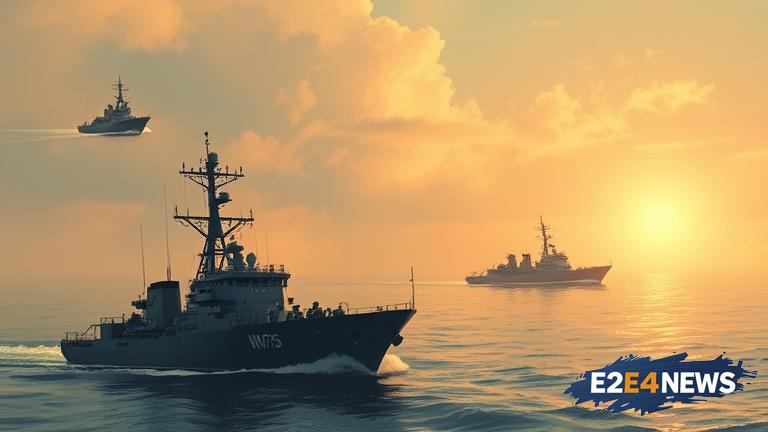The situation in the South China Sea remains tense as reports emerge of heavily armed Chinese boats lingering near the Ayungin Shoal, a disputed territory claimed by the Philippines. Despite a noticeable decrease in the number of vessels in the area, the presence of these armed boats has raised concerns among regional stakeholders and sparked debates over the implications for maritime security and territorial sovereignty. The Ayungin Shoal, also known as the Second Thomas Shoal, is a submerged reef located approximately 105 nautical miles west of Palawan, Philippines, and is claimed by the Philippines, China, and Taiwan. The shoal has been a focal point of contention in the South China Sea, with China’s increasing assertiveness in the region exacerbating tensions between claimant states. The Philippines has long maintained a presence in the area, with a handful of Filipino Marines stationed on a grounded ship, the BRP Sierra Madre, which serves as a makeshift outpost. However, the presence of heavily armed Chinese vessels has raised concerns over the safety and security of these personnel. China’s maritime militia, a paramilitary force comprised of fishing vessels and crew, has been accused of playing a significant role in the country’s efforts to assert its claims in the South China Sea. These vessels, often equipped with advanced communications and surveillance equipment, have been known to engage in provocative behavior, including harassment of foreign vessels and personnel. The persistence of Chinese vessels near the Ayungin Shoal has sparked calls for increased international cooperation and diplomacy to address the ongoing tensions in the region. The United States, a key player in regional security, has reiterated its commitment to upholding freedom of navigation and overflight in the South China Sea, while also emphasizing the importance of resolving disputes through peaceful means. The European Union, meanwhile, has expressed concerns over the escalating tensions and called for restraint from all parties involved. As the situation continues to unfold, the international community remains vigilant, with many calling for a peaceful resolution to the disputes in the South China Sea. The Philippines, for its part, has vowed to continue defending its territorial claims, while also pursuing diplomatic efforts to resolve the disputes through peaceful means. The country’s Department of Foreign Affairs has issued statements reiterating its commitment to upholding international law and protecting the rights of Filipino fishermen in the area. The presence of heavily armed Chinese vessels near the Ayungin Shoal has also raised concerns over the potential for miscalculation or accidental conflict, which could have far-reaching consequences for regional stability. In response to these concerns, the Philippines has increased its military presence in the area, with additional personnel and equipment deployed to the region. The country’s military has also conducted joint exercises with regional partners, including the United States, to enhance interoperability and strengthen maritime security. As tensions in the South China Sea continue to simmer, the international community remains focused on finding a peaceful resolution to the disputes. The Association of Southeast Asian Nations (ASEAN) has played a key role in promoting regional dialogue and cooperation, with efforts underway to establish a code of conduct for parties operating in the South China Sea. However, the path forward remains uncertain, with many challenges and obstacles to be overcome before a lasting resolution can be achieved. The situation near the Ayungin Shoal serves as a reminder of the complexities and challenges inherent in resolving maritime disputes, and the need for sustained diplomacy and cooperation to address these issues. With the region’s security and stability hanging in the balance, the international community must remain vigilant and committed to finding a peaceful resolution to the disputes in the South China Sea. The presence of heavily armed Chinese vessels near the Ayungin Shoal is a stark reminder of the need for continued dialogue and cooperation, and the importance of upholding international law and protecting the rights of all parties involved. As the situation continues to evolve, the world watches with bated breath, hoping for a peaceful resolution to the disputes and a stable and secure future for the region.
